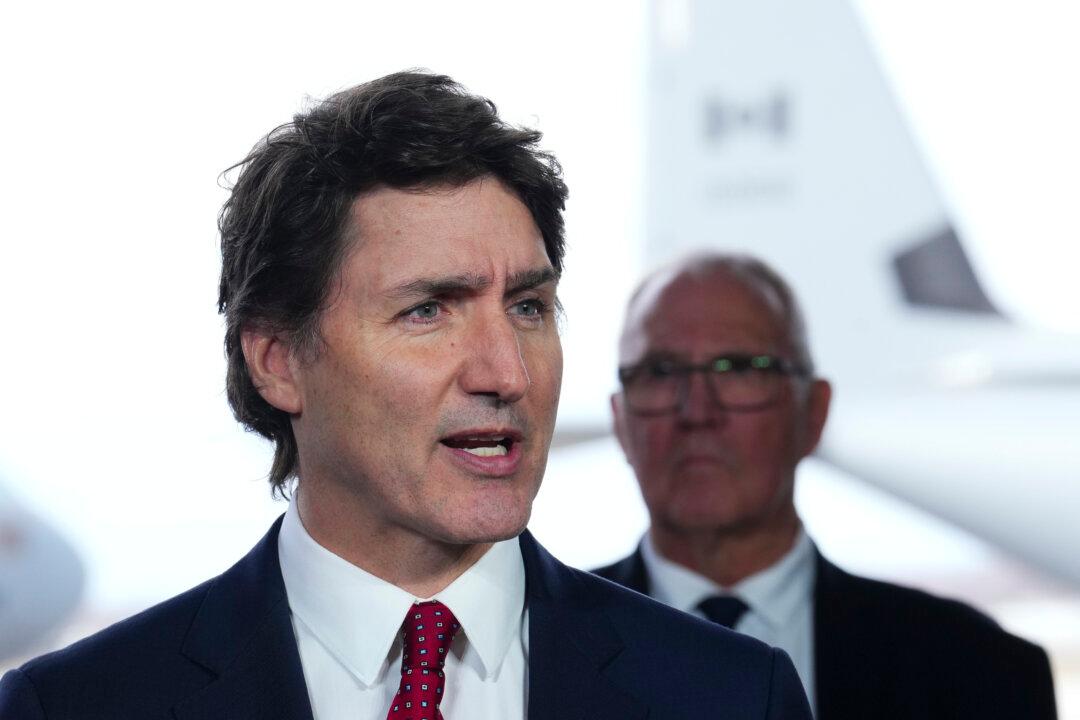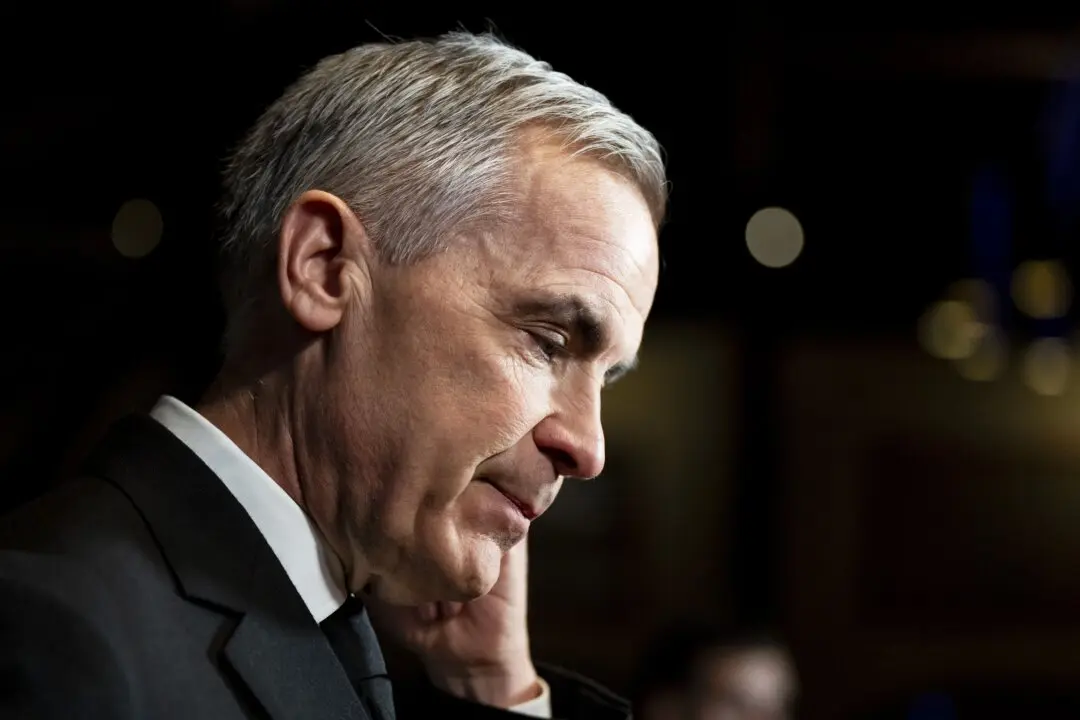Canada is considering joining the second phase of AUKUS, a U.S.-led security partnership with the United Kingdom and Australia, Prime Minister Justin Trudeau says.
“We are already observers in one of the working groups in Pillar II of AUKUS and we’ve had excellent conversations with the U.S., the U.K., and Australia [about] how we can work even closer,” Mr. Trudeau said during an April 8 press conference at Canadian Forces Base Trenton in Ontario.





